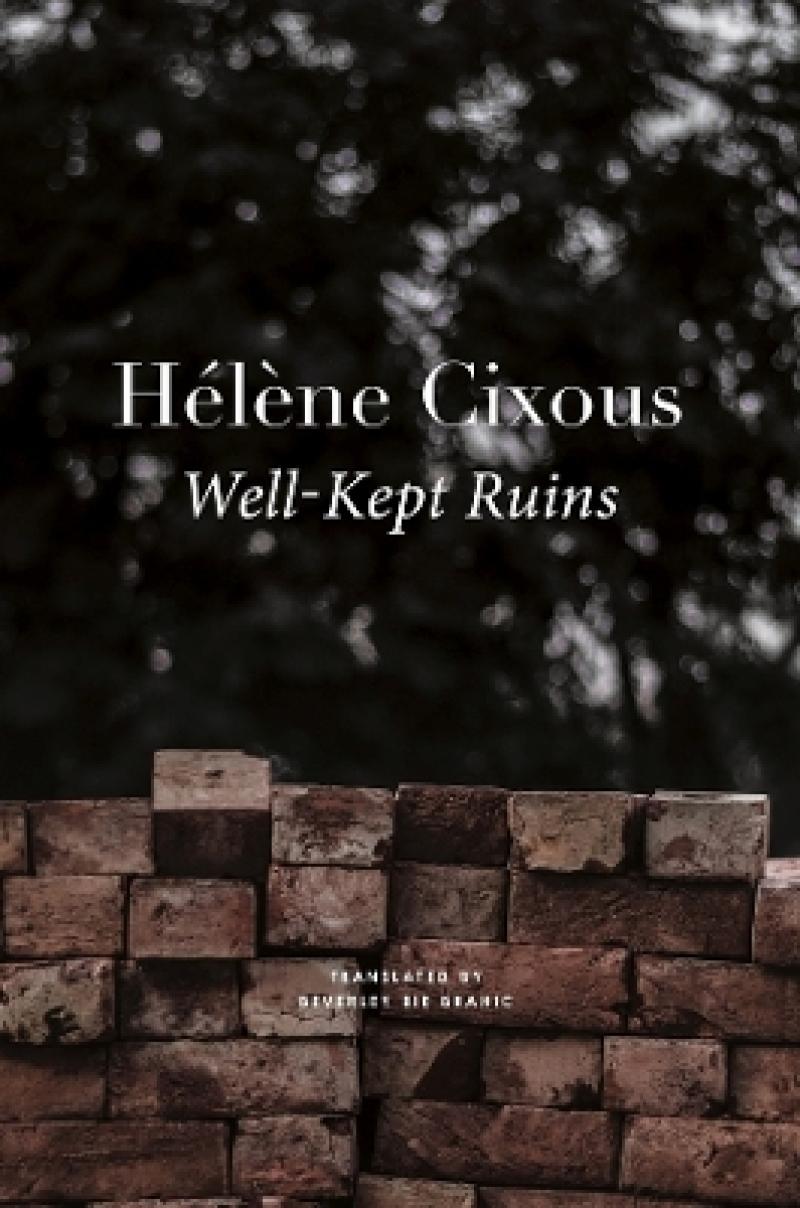"<i>Well-Kept Ruins</i> is shaped by a yearning to recover the irrecuperable. Cixous is compelled to revisit the fates of these castaways. She is a daughter who attempts to commemorate a midwife; a writer who finds herself through the bond of mother and child. . . . Cixous’s book is a genealogy of exile."
The Spectator
"This welcome translation gives us a Cixous still energetically writing the self, and other selves—this time with imperative retrospect."
4columns
"To read Cixous here is to feel oneself pulled along, engulfed, really, amid a torrent of words, a cascade of sentences, as if one has drifted inside of a tumbling, beautiful, confusing, dream. A reader, too, must let go, must allow that we will not always know which of the book’s many voices are speaking, that we cannot always be sure where we are in time and space. The point was never to be so securely fastened, and anyway, such a condition is impossible, for Cixous at least."
Irish Times
"<i>Well-Kept Ruins</i> is at once a memoir, a history, and a work of philosophical theory — as [Cixous] seeks forms of writing to describe the embodied and inherited traumas of the 20th century."
On the Seawall
"One of Cixous’ imperatives is that writing should always act against finality, against death; now, with that most difficult and ungathered subject, she evokes that power."
Cleveland Review of Books
"Woven throughout is a meditation on the life of Cixous's mother and the ineffability of another's interior life and experience. . . Recommended."
Choice
"<i>Well-Kept Ruins</i> turns inward, toward the personal sense of a present wonderfully and terribly ruptured by the past."
The Nation
In the Lower Saxony region of northwestern Germany sits the city of Osnabrück. This is where, in 1648, the Peace of Westphalia was signed, bringing the Thirty Years’ War and one of the most calamitous periods of European history to an end. But the city was later to witness another calamity.
Today, as one walks through Old Synagogue Street in a rich neighborhood of Osnabrück, one might miss noticing a pile of pale stones held together by chicken wire that sits between two fashionable homes. These are the well-kept ruins from behind which stares a gaping space—a place of memory and oblivion. Four polished plaques tell the tale of the horror-filled night of November 9, 1938—today known as Kristallnacht—when the synagogue that had stood on this spot was desecrated, looted, set on fire, and eventually demolished by Hitler’s forces. On the same day, ninety parishioners were imprisoned by the Gestapo and eventually sent to the Buchenwald concentration camp.
Osnabrück was also home to Eve Klein, a member of the city’s early-twentieth-century Jewish community and the mother of author Hélène Cixous. In Well-Kept Ruins, Cixous returns to the historic city in 2019 and reflects on the remains of the synagogue that “express the life lost, the life kept.” Walking the streets of the city, plumbing the depths of the past along with her own family’s history, looking deep into the future, and punctuating her poetic prose with haunting photographs, Cixous explores the ruins at the heart of humanity. Part memoir, part philosophical meditation, Well-Kept Ruins is a genre-defying and timely reflection of the contemporary human condition.
2.Reconstitutions
3.Plötzlich—Suddenly a Photograph
4.Well-Kept Tales—Prisons
5.Salt in the Soup
6.In the Suitcase
